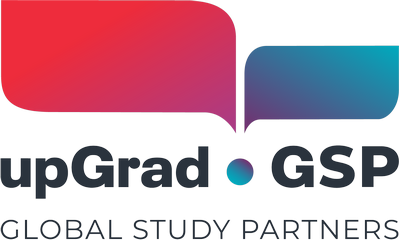As part of its efforts to improve the quality of international education in Australia, the local government has replaced the Genuine Temporary Entrant (GTE) requirement with a Genuine Student (GS) requirement. The GS requirement is designed to ensure that all applicants for an Australian student visa are genuine applicants for entry; that they understand that studying in Australia is their primary reason for obtaining a visa and that they will remain as a student during their stay in the country.
The change from the GTE to the GS requirement was announced in the Migration Strategy released on 11 December 2023. The GS requirement commenced for student visa applications lodged on or after 23 March 2024. Student visa applications lodged before then were still assessed against the GTE requirement.
GTE vs. GS requirement
The GTE requirement is a declaration made by a student visa applicant which attests that their intention to stay in Australia is temporary. It assures that they will use their visa for its intended purpose of education and not as a channel to pursue residency in the country.
The GS requirement serves a similar purpose. But instead of demonstrating the genuine student criterion through a written statement, applicants must answer a set of questions on the online student visa application form. The student visa declaration will be amended to require applicants to confirm that they:
- understand what it means to be a genuine student for the purposes of studying in Australia
- have read, understood and committed to comply with student visa conditions
- to notify the Department of Home Affairs of any changes to their circumstances in relation to their student visa
- understand that while post-study pathways are available, only a limited number of graduates will be eligible and that those who are unable to stay lawfully in Australia must leave the country.
The Genuine Student requirement questions
In the online student visa application form, students need to explain the following:
- current circumstances: The applicant’s ties to family, community, employment and economic circumstances.
- reason for studying in Australia: Why the applicant is choosing Australia and their education provider. The applicant must also confirm their understanding of the requirements needed to study and live in Australia, including those specific to their program.
- benefits of completing the course: How their chosen program benefits the applicant.
Answers to each question must be written in English, with a maximum of 150 words per question. Applicants must also attach documents supporting their responses to their ImmiAccount. Generic statements unsupported by evidence won’t be considered, so students should only submit relevant documentation.
There will also be a section where the applicant may provide details of any other relevant information they’d like to include. An additional question will also be given to applicants who have previously held a student visa or who are lodging an application in Australia from a non-student visa.
What to include in the Genuine Student requirement
Students are encouraged to provide information or evidence of the following:
Previous study
The applicant must show their previous study experience through records of academic transcripts and certificates of attainment. They should include the name of their education providers and the length of study done with each.
Previous study in Australia
If the applicant previously studied in Australia, they should show a complete history of their study records in the country. They must also explain why they’re changing their course and/or education providers, with details of information on the progress they’ve made on other courses. The applicant should also provide details of study gaps of more than two months during an academic year, if any. Any other information that may be relevant to their study record in Australia may also be included.
Current employment
Employed applicants must share details of their current employer and company address, with the name and contact details of someone who can confirm their employment. They should also provide information on their period of employment and details of all positions held.
Circumstances in their home country or country of residence
The applicant must expound on the nature of their personal ties in their home country or country of residence. These include family, community and employment ties. The applicant must also give reasons for not studying in their home country if a similar program is available.
Economic circumstances in their home country or country of residence
Applicants may describe their economic situation through:
- documents showing employment or business activities for 12 months before application
- potential employment offers, including salary and other benefits, after course completion
- income tax return or bank statements.
If the applicant is incentivised to leave their home country due to political and civil unrest or military service commitments, they must provide reasons and supporting evidence.
How the Genuine Student requirement is assessed
The GS requirement is assessed based on a student’s intention to genuinely pursue education in Australia. It considers an applicant’s circumstances, immigration history and compliance with visa conditions and any other relevant matter. Here’s a quick overview of what immigration officers will take into account when deciding on visa application approvals:
Situations in their home country or country of residence
The Australian government will consider the reasons the applicant isn’t studying in their home country, especially if a similar program is available there. They’ll also look into the applicant’s ties to their country of residence and economic circumstances.
Potential situation in Australia
The immigration office will put weight on the applicant’s potential situation in Australia. They will consider the level of knowledge of their chosen course and education provider (including research the applicant has taken into their study) and previous academic experience and qualifications. They will also assess the student’s planned living arrangements and whether or not itis financially feasible.
Value of the course to their future
The GS requirement checks if the applicant’s chosen course is consistent with their level of education and if it will help them gain employment or improve their career prospects after graduation. It assesses if their program is relevant to past or proposed experience, while weighing expected salary and other benefits the course may provide the student after finishing it.
Immigration history
The immigration office will also put weight on the applicant’s immigration history, considering their:
- visa and travel history for Australia and other countries
- previous visa applications for Australia or other countries
- visa refusals or cancellations.
For minor applicants, the following criteria will be considered of their parent or legal guardian.
Learn more about the Genuine Student requirement
upGrad GSP works to help students achieve their academic dreams. Speak to our business development experts to learn how you can help your students pass the genuine student requirement and stay tuned to our blog for the latest updates on student visa news in Australia.




